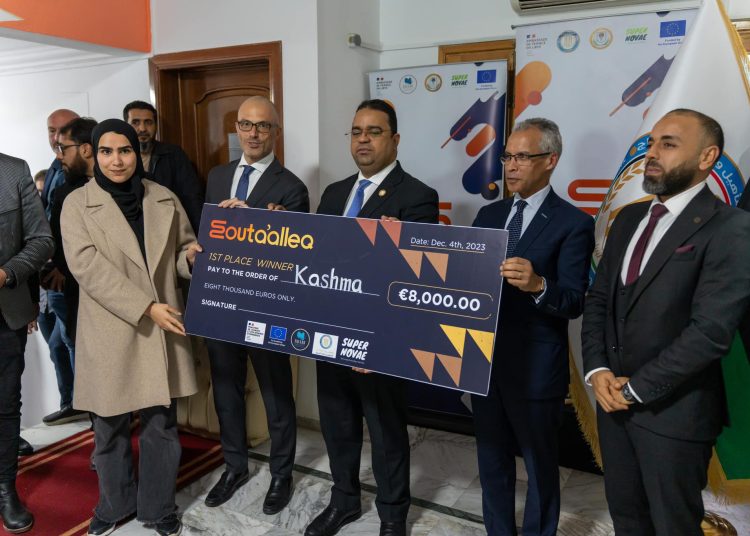French NGO, Supernovae, along with the National Rehabilitation and Reintegration Programme of the Ministry of Labour and Rehabilitation, celebrated last Wednesday, (31 January), the end of the second phase of the Mouta’alleq programme.
At the conclusion of the ceremony held at the programme’s Janzour headquarters, financial awards were distributed to several trainees in the field of entrepreneurship to help them start their projects in various fields, including car repair services, electricity, digital marketing, e-commerce, and logistics services.
The programme involved the training of 200 people, including former fighters (militias) and family members of those affected by conflicts. The Mouta’alleq project comes with joint funding from the European Union in Libya and the French Embassy in Libya.
The ceremony and award distribution activities were attended by the Tripoli based Minister of Labour and Rehabilitation, Ali Al-Abed Al-Rida, the French Ambassador to Libya, Mustafa Mihraje, and the European Union Ambassador to Libya, Nicola Orlando, and the Director General of the Project, Sami Al-Alous.
Reintegrating former militias is a national responsibility
Speaking at the event, Minister of Labour Al-Abed said that the reintegration process is a national responsibility, and everyone must contribute to it and provide appropriate training and qualification to former fighters (militias) or members of families who have lost their breadwinners so that they are able to face life’s challenges through small projects that achieve good financial returns.
Strengthening civil and societal peace
Pointing out that the process of reintegrating former fighters into civilian life has become a necessity that must be provided with all support so that civil and societal peace is not undermined, and this segment becomes able to contribute to construction and development and provide products and services that benefit everyone and benefit a large number in society.
It will be recalled that the Mouta’alleq Project was launched in May 2023 by targeting more than 200 young civilian trainees involved in armed formations, widows who lost their husbands in military operations, and their sons and daughters, through multiple training courses, starting with psychological and social rehabilitation. The project also provided specialized training for creative ideas and small projects, allowing them to be integrated into job opportunities according to the training they had received.








